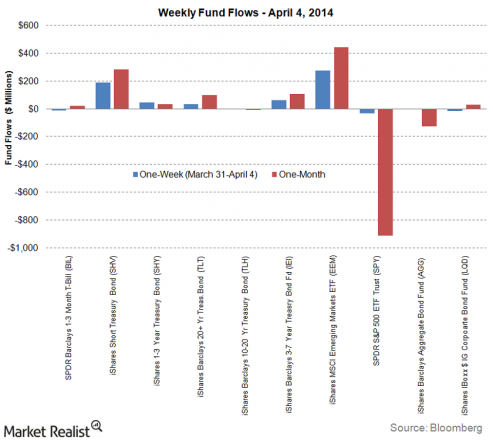How to Short the Euro with ETFs Investment U
Post on: 17 Апрель, 2015 No Comment

by Investment U Research
An Investment U White Paper Report
The Eurozone is back in the news again and – needless to say – it isn’t good .
Anyone taking even a sidelong glance at the news knows that huge budget problems in Cyprus are once again undermining the euro.
The euro is heading lower against the dollar on increasing recognition that Europe’s debt problems are bigger than expected, more expensive than expected and continue to be contagious.
At Investment U, we’ve often said that it’s not possible to predict stock markets, commodities, futures or bond markets consistently and accurately.
But currency markets seem to offer the exception to the rule… The ultimate fate of the euro is already clear.
The euro’s doomed… and so is the Eurozone .
Down Goes the Euro
The euro just fell to a new four-month low. Take a look at the year-to-date performance of the euro versus the dollar below and you can clearly see that the euro is in a downward slide.
The crises de jour is Cyprus…
Cyprus and the European Union, European Central Bank and the International Monetary Fund agreed Monday to restructure the country’s two largest banks, forcing shareholders and large depositors at the Bank of Cyprus and Cyprus Popular Bank to take losses in return for a 10 billion euro bailout.
To secure the rescue loan package, the Cypriot government had to find ways to raise 5.8 billion euros ($7.5 billion) on its own. The bulk of that money is now being raised by forcing losses on large bank deposit holders, with the remainder coming from tax increases and privatizations.
As part of the deal, Cyprus must drastically shrink its banking sector, cut its budget, implement structural reforms and privatize state assets. Cyprus Popular Bank will be restructured, with all of its bond holders and bank account holders with more than 100,000 euros facing significant losses.
Of course Eurozone central bankers insisted that the formula agreed for Cyprus would not be applied uniformly in banking crises in other countries.
Confiscating assets from depositors to shore up banks that invested in Greek bonds is bad enough. But according to Barron’s and the Journal. most of these banks will default even with the EU bailout money.
The markets so far haven’t reacted too negatively to the news. However the real problem is not Cyprus but the other weak banking systems in the EU.
If you were living in Italy, Spain, Portugal, Ireland, France, Slovenia or a few others – all of which have banks that may need bailouts – and there was a possibility you might get offered the same kind of deal Cyprus got, what would you do?
While the rest of the world speculates over the precedent the bailout of Cyprus might set for other peripheral countries, if you are a potential victim in the next EU initiated bailout… you’re only thinking one thing.
That’s right! Get my money out of harm’s way.
Hopefully this Cyprus deal will not be repeated in other EU bailouts, but I have been around too long to believe they will do this to only one country. That’s a bet I would never make.
This could get ugly…
(Slovenia may be the first to find out, as anxiety mounts, that they face a worsening bank crisis and will need Eurozone intervention within months.)
Can You Say Timber?
When it comes to the euro… it’s time to scream timber!
Out-of-control government spending by Greece, Portugal, Spain, Italy, France and now Cyprus (among others) is finally coming home to roost.
Meanwhile, according to a Greek newspaper report, Cyprus is to impose a ban on cashing checks. It will also limit the amount of cash that can be taken out of the country as part of a series of measures to avert a run on the country’s crippled banks.
It appears that at the end of the day only another massive ECB and IMF intervention can keep Cyprus and the Eurozone itself afloat. However, it looks like just another effort to buy more time for the Eurozone to get its house in order.
In the meantime, Cyprus will face a deeper recession, higher unemployment and more poverty as a result of the bailout.
It’s hard to pay your debts when you’re out of work. And it’s hard to find a job when the economy’s in the tank. Add Cyprus to this growing list that includes Greece, Ireland, Spain, France and others.
Against such a backdrop, I hate to say it, but the Euro’s not going to make it!
Cyprus is a very minor player in the Eurozone, but the pain of its potential exit will then be spread to the valuation of the euro and thus the entire Eurozone. Plus, if Cyprus comes apart at the seams and has to drop out of the Eurozone, it could be quickly followed by others.
The important takeaway from the euro’s troubles is that the currency isn’t going to be able to get back up once it completes its fall from grace. How many countries will need bailouts before it becomes obvious that the euro just isn’t going to work?
It’s only a matter of time before one of the troubled Eurozone countries walks away from its massive bailout debts.
Can the Eurozone take the stress? I don’t think so…
That’s why we’re putting out an international distress call on it right now. Fortunately, there are some things you can do to protect yourself – and profit.
Here’s how…














